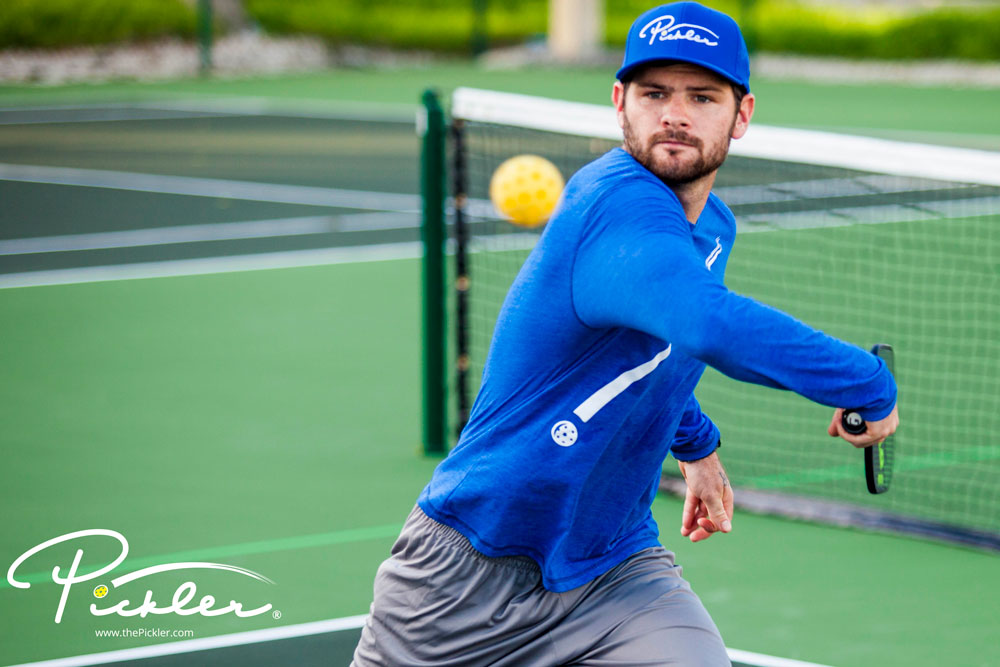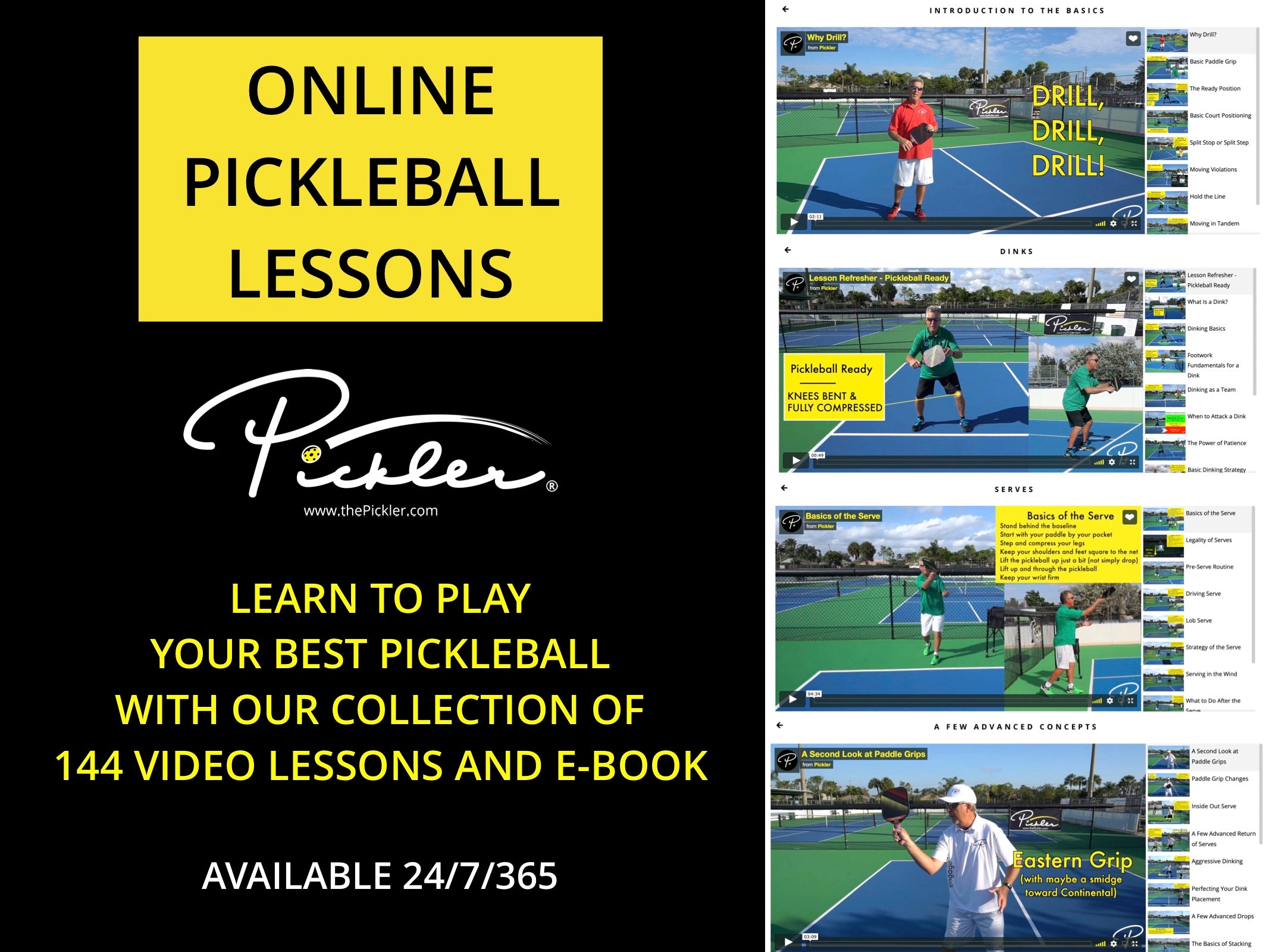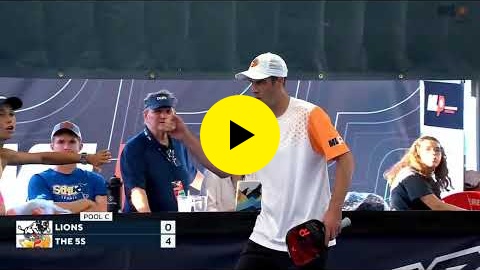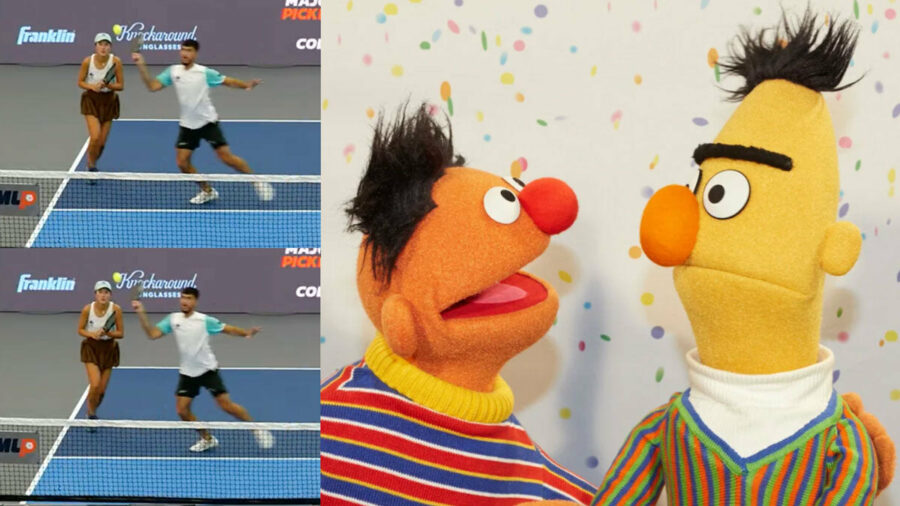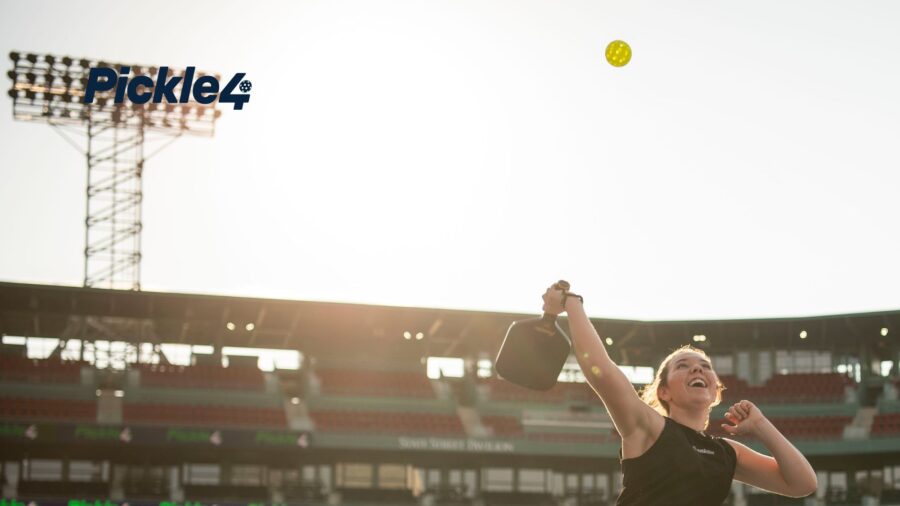The “Shake & Bake” is a nickname for a particular set play or strategy in doubles pickleball that is popular amongst aggressive-style pickleball players. This set play or strategy is when one partner of the serving team in doubles pickleball drives the third shot, while the other partner crashes (i.e., runs to) the pickleball net. The partner that crashes or runs to the pickleball net is trying to put away the fifth shot if the opposing team pops the drive up into the air. This strategy is extremely effective for pickleball players with strong drives and quick footwork, and can put a ton of pressure on opposing pickleball players.
Check out the video below for an example of a “Shake & Bake” (which is also known as a “Crush & Rush”).
How to Execute the “Shake & Bake” in Pickleball
Executing the perfect “Shake & Bake” on the pickleball takes some practice and also some chemistry and communication with your partner. However, if you can master this strategy, you will certainly have more success on the pickleball courts.
When executing the “Shake & Bake” on the pickleball court, it is important to:
- Hit a Quality Third Shot – To execute the “Shake & Bake” in pickleball it is important to have a strong, consistent third shot that is low over the pickleball net. This is because, if the third shot is poor quality (for instance, high above the pickleball net), then the opposing team will be able to hit an aggressive shot. This aggressive shot will likely be targeted at the player that crashed the pickleball net. As a result, the crashing player will likely be in trouble and will be a “sitting duck.” The crashing player is placing a lot of trust and confidence in his or her partner to hit a quality third shot.
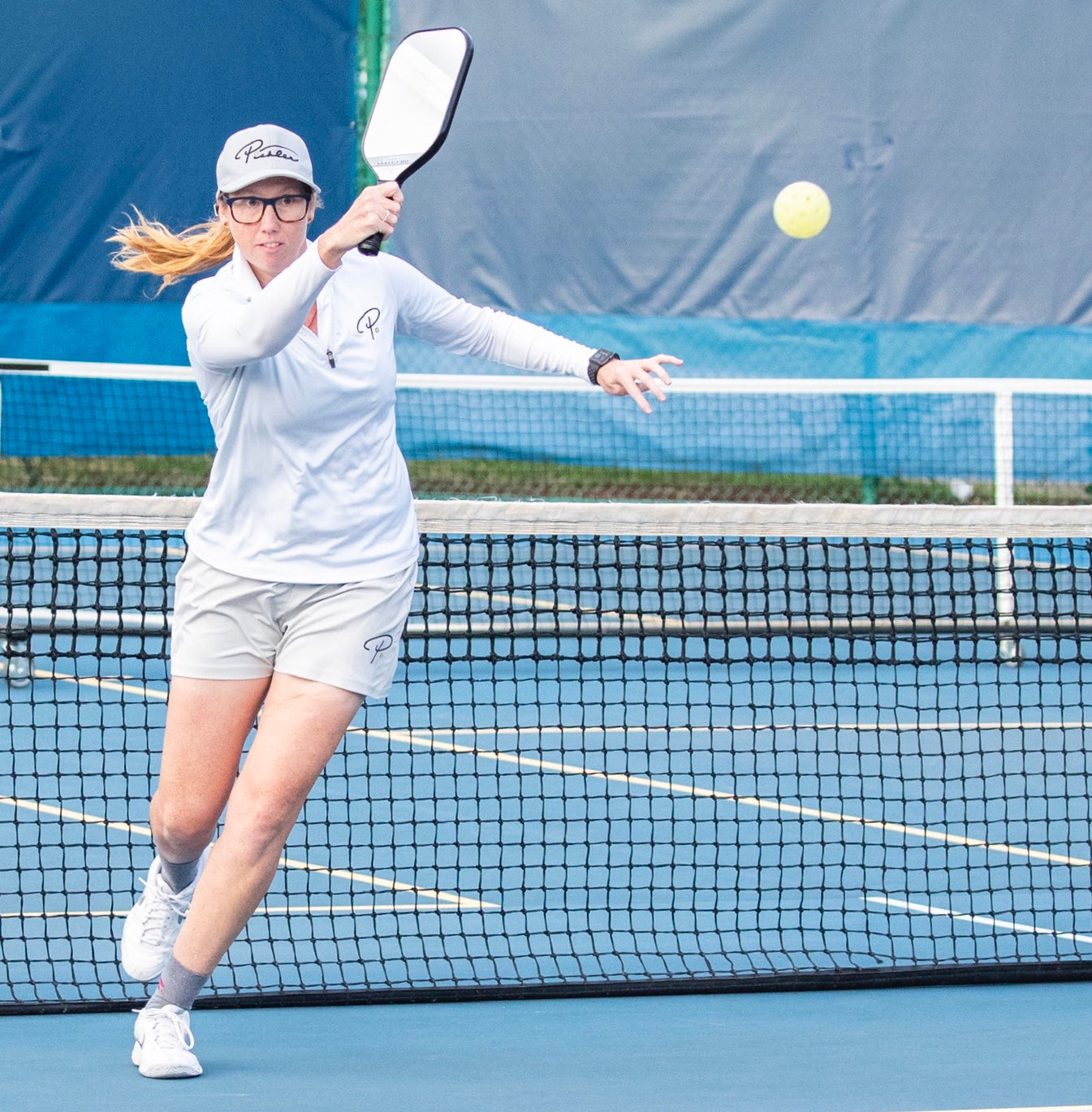
- Have Strong Placement of the Third Shot – A quality third shot is usually more about placement than pace. As noted above, the third shot needs to be relatively low above the pickleball net. A high third shot will result in an aggressive shot by the opposing players. With that in mind, consider hitting the third shot drive to attack the weaker of the two opposing players—in particular, the opposing player that is weaker at blocking or handling pace. Also, consider hitting the third shot drive to attack that opposing player’s backhand side or awkward “chicken wing” location near that opposing player’s backhand-side shoulder. This will help induce a pop-up on the fourth shot, which will result in the desired easy put away for the crashing player. Lastly, if your opponents are stacking or switching sides of the pickleball court, try to hit the third shot drive to the opponent that is in motion, as players are more likely to make unforced errors (like pop-up a pickleball) when in motion.
- Move Your Feet to Crash the Pickleball Net – Remember the “Shake & Bake” is a set play. This means that the partner that is not hitting the third shot needs to immediately crash or rush the pickleball net. This play or strategy is not as effective if the crashing partner does not crash and run in. Any hesitation will relieve pressure from the opposing team and provide them with more room for error. In other words, the desired put away shot may not come to realization if the crashing partner is slow to move his or her feet or otherwise hesitates. So, if you are the crashing partner, be sure to move your feet and get to the Non-Volley Zone or Kitchen Line as quickly as possible, so that you are in the best position for the fifth shot, which is hopefully a put away. With that said, if you are the crashing partner, and as you are running to the Non-Volley Zone or Kitchen Line, you notice, or your partner alerts you, that the third shot is poor quality, then stop your forward momentum and prepare to be on the defensive.
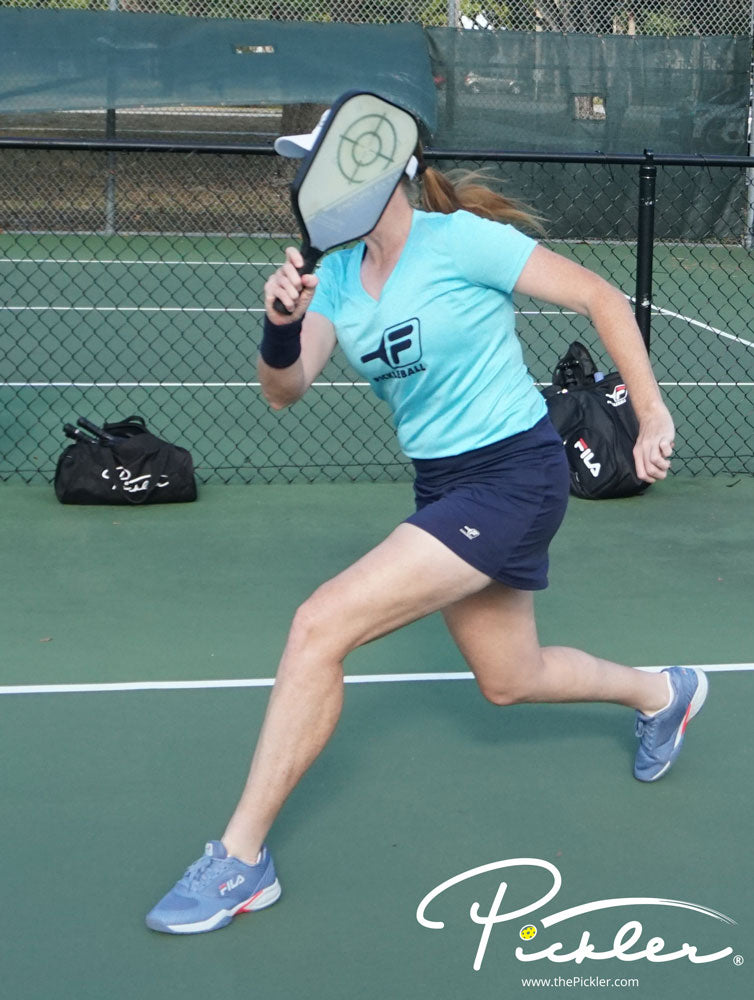
- Try to Set Up the “Right” Partner – Some pickleball players have tremendous third shots—in particular, third shot drives—while other pickleball players have fast feet and quick reaction at the pickleball net. With that said, it is important to try to set up the “right” partner. In other words, the partner with the quality third shot drives should hit the third shot when possible (for instance, it may not be possible if the opposing team hits the return of serve all the way on the other side of the pickleball court). Also, the partner with the quick feet and hands should be the one to crash the pickleball net and hit the put away shot. Lastly, be aware that it is typically easier to be the crashing player when his or her forehand is in the middle of the pickleball court (i.e., assuming the crashing player is a right-handed player, then this would be on the odd/left-hand side of the pickleball court; assuming the crashing player is a left-handed player, then this would be on the even/right-hand side of the pickleball court). This is because most players have stronger forehand put away shots than backhand put away shots. Further, pickleball players will have more reach—in other words, more court coverage—with their forehand. This is important because the opposing team will oftentimes hit the fourth shot to the player that is deep in the pickleball court, which will be the partner that hit the third shot. As a result, it may be easier to execute the “Shake & Bake” when the crashing player is starting from a point with his or her forehand toward the middle of the pickleball court.
- Communicate with Your Partner – Be sure to communicate with your partner on the pickleball court. This is especially true when executing the “Shake & Bake.” Prior to starting a pickleball game, communicate with your partner on situations when you will drive the third shot and who should take the third shot and who should crash the pickleball net. By communicating in advance of a point, you will likely avoid any confusion or hesitation on the pickleball court. Also, be sure to alert your pickleball partner of a poor third shot—even a small heads up could help your partner react to an aggressive fourth shot.
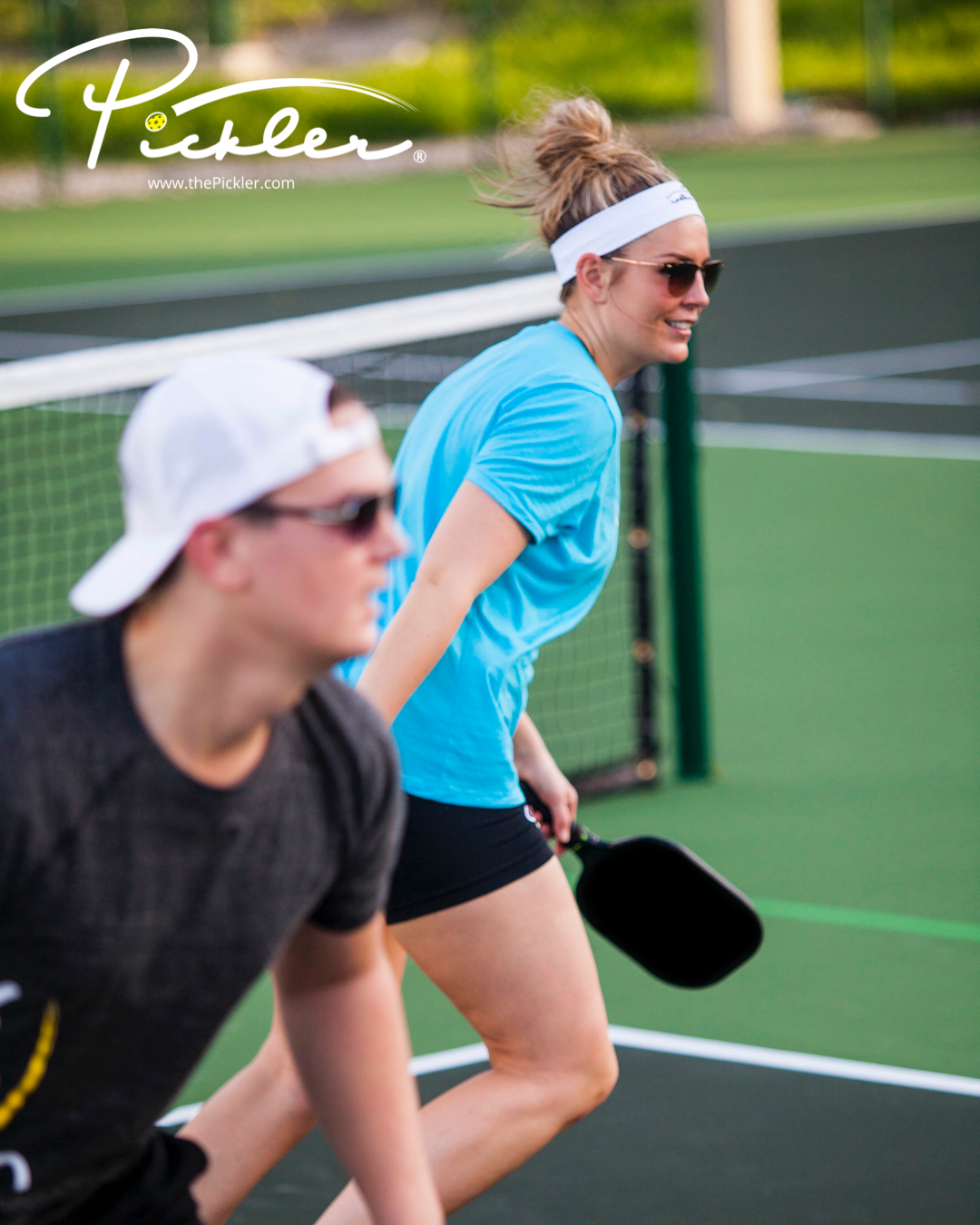
The “Shake & Bake” typically refers to the set play when the third shot is hit as a drive—in other words, a pickleball with some pace. However, it is possible to execute this same strategy when using a drop shot for the third shot (but will be referred to as a “poach,” rather than a “Shake & Bake”). Check out the video below for an example of this “poach” strategy when the third shot is a drop, rather than a drive.
How to Defend Against the “Shake & Bake” in Pickleball
When playing against pickleball players that love the “Shake & Bake”—cue Leigh and Anna Leigh Waters—it is important to be able to diffuse the strategy and relieve pressure that the “Shake & Bake” inevitably brings. To defend against the “Shake & Bake” on the pickleball court, try the following:
- Hit a Quality Return of Serve – The “Shake & Bake” is easier to execute when there is a weak return of serve—for instance, a short, high return of serve. This is because it is easier to hit an aggressive third shot drive. In light of this, when defending against the “Shake & Bake,” it is incredibly important to have a quality return of serve that is deep near the baseline and low. By hitting a deep return of serve, your opponents will have to hit a stronger third shot drive, and you and your partner will have more time to react to the third shot drive. By keeping the return of serve low, your opponents will have to hit up on the pickleball, which makes for a more difficult drive and may be more likely to sail out of bounds.
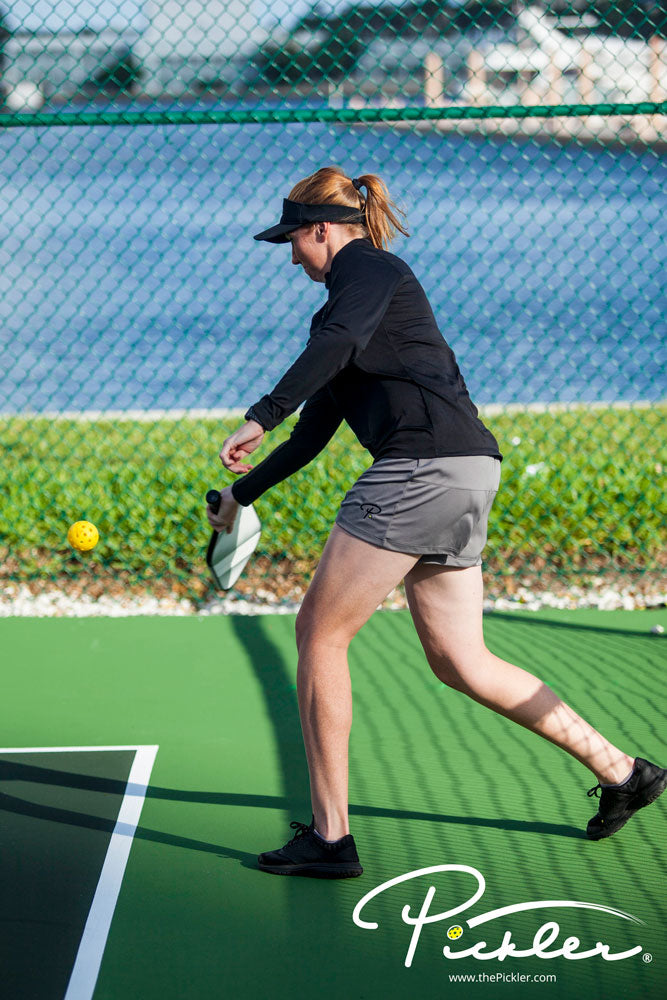
- Have Smart Placement of the Return of Serve – As noted above in tip #4 for executing the “Shake & Bake,” some pickleball players have tremendous third shots—in particular, third shot drives—while other pickleball players have fast feet and quick reaction at the pickleball net. With that said, when you are defending against the “Shake & Bake,” try to hit the return of serve to the player with the weaker third shot drive. It goes without saying, but the player with the weaker third shot drive will have a harder time setting up the “Shake & Bake” effectively. Also, try to hit the return of serve to the player that is more aggressive crashing the pickleball net. By hitting the return of serve to the more aggressive player, you will be able to keep that player pushed back into the pickleball court and unable to apply pressure to you and your partner by crashing the pickleball net.
- Hit the Fourth Shot Down – When you opponents hit a third shot drive and are looking for the “Shake & Bake,” it is incredibly important to neutralize the drive. To neutralize the drive, hit the drive down at your opponents’ feet. If you have soft hands, you could even try to reset the drive into the Non-Volley Zone or the Kitchen. By hitting the drive down at your opponents’ feet or into the Non-Volley Zone, your opponents will be unable to attack the fifth shot, as the drive will not result in a pop up. In other words, there will be no “Bake” for the “Shake & Bake.” For a good example of a neutralizing fourth shot, check out the video below.
- Hit the Fourth Shot Out of Reach – Another strategy for neutralizing the “Bake” of the “Shake & Bake” is to hit the fourth shot out of reach of the crashing player. This could be a fourth shot that is near the sideline of the player that hit the third shot. This could also be near the sideline that is behind the crashing player, especially when the sideline that is behind the crashing player is on that crashing player’s backhand side. This is because most crashing players will move toward the middle of the court, leaving space open behind them, and most pickleball players have weaker backhand put away shots than forehand put away shots (although, be wary of the pickleball players with killer two-handed backhands!). And, as a reminder, it is important to keep the fourth shot low or down at the crashing player’s feet, as the crashing player wants a ball that is in the air, above the pickleball net
- Limit Your Switching or Stacking – Switching and stacking is an advanced pickleball strategy to keep the players on a doubles pickleball team on a particular side of the pickleball court. If you are a pickleball team that likes to stack to switch sides of the pickleball court, be cautious of stacking and switching when playing a team that loves the “Shake & Bake.” This is because stacking and switching requires a lot of extra movement on the pickleball court and, when facing a team with strong third shot drives, the extra movement may lead to more unforced errors. If you are continuously being beat by the “Shake & Bake” while stacking or switching, consider staying in place, or even faking a switch and staying in place, in order to limit your movement on the pickleball court, so that you can focus on handling the third shot drives without errors. To learn how to master pickleball switching and stacking for doubles pickleball, check out Pickler’s online pickleball video lesson collection called My Pro Pickleball Coach, which includes over 144 pickleball videos that breakdown every aspect of the sport of pickleball, including advanced shots, strategies, and other concepts like stacking.
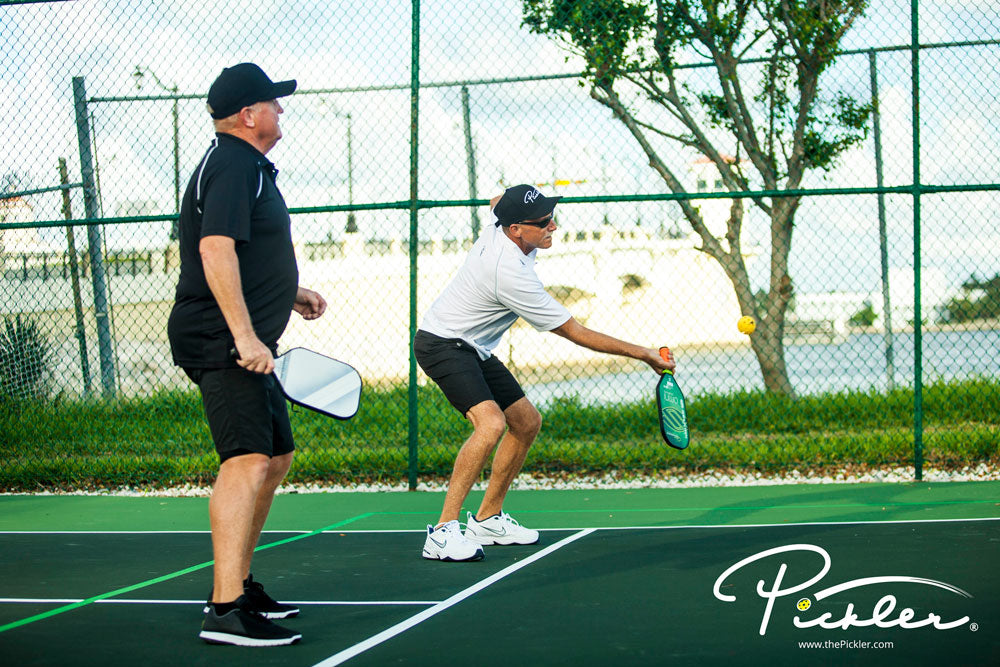
Get Out on the Pickleball Courts and Try the “Shake & Bake” Today!
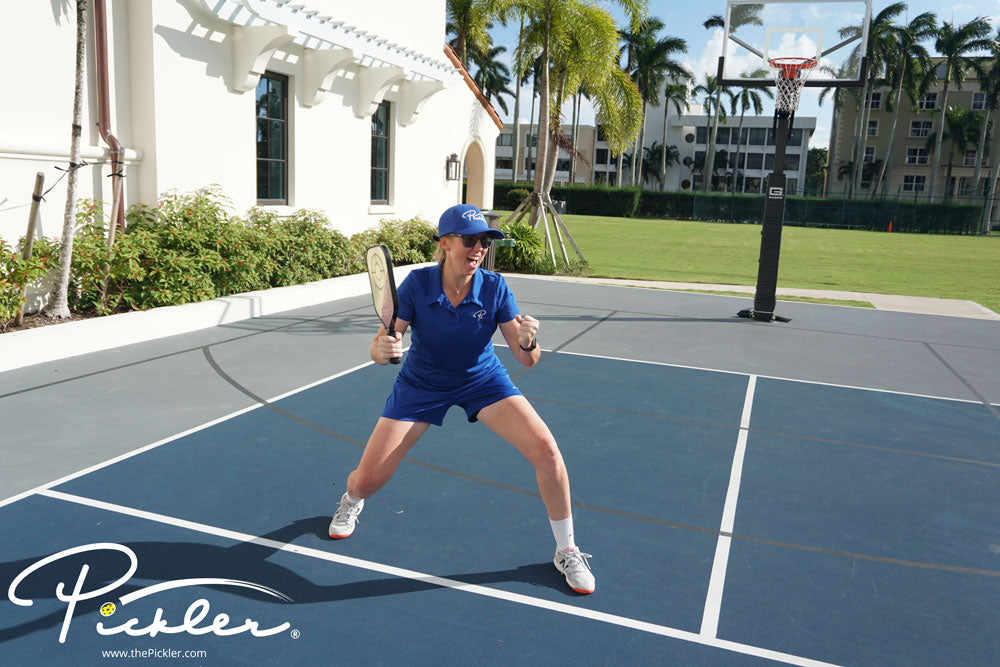
WANT MORE PICKLEBALL TIPS AND STRATEGIES?
If you want more pickleball tips and strategies on every aspect of your pickleball game, check out Pickler’s online video lesson collection called My Pro Pickleball Coach. My Pro Pickleball Coach is a fraction of the price of one clinic or even one lesson, and features over 140 video lessons (over 7 hours of instruction!), as well as a corresponding e-book. These online video lessons are available on demand 24/7 and breakdown every aspect of the sport of pickleball, including pickleball drills, strategy, and advanced concepts, so you will play your best pickleball.

